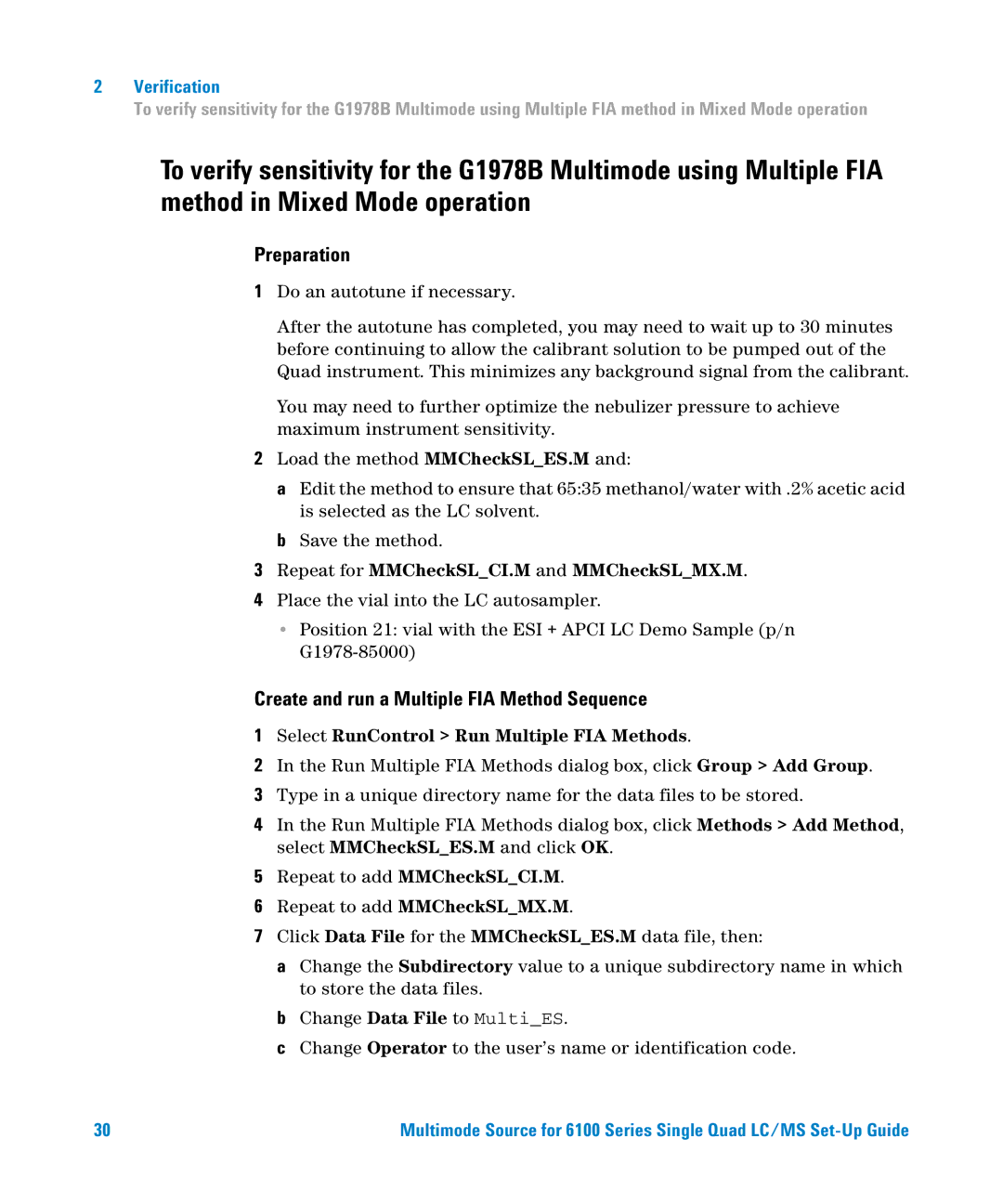G1978B specifications
Agilent Technologies G1978B is a high-performance mass spectrometer that is widely recognized for its innovations in analytical chemistry. This instrument stands out due to its combination of advanced technologies that enhance sensitivity, accuracy, and precision for complex analyses.One of the key features of the G1978B is its compatibility with various ionization techniques, including Electrospray Ionization (ESI) and Atmospheric Pressure Chemical Ionization (APCI). This versatility allows users to analyze a diverse range of sample types, from small molecules to large biomolecules. Each ionization technique has its unique advantages, making the G1978B an excellent choice for laboratories focusing on pharmaceuticals, environmental analysis, and proteomics.
The G1978B is equipped with a sophisticated quadrupole mass filter, ensuring high-resolution mass measurements. This technology provides excellent mass accuracy and reproducibility, enabling users to distinguish between closely related compounds with minimal interference. The advanced data acquisition systems incorporated in the G1978B allow for rapid scanning capabilities, making it particularly effective for high-throughput screening applications.
In addition, the instrument features an intuitive user interface that simplifies method development and operational tasks. This includes streamlined software solutions that facilitate data analysis and interpretation, ensuring that even complex datasets can be managed efficiently. Furthermore, built-in diagnostic tools help in monitoring instrument performance, significantly reducing downtime and enhancing productivity.
The G1978B also incorporates advanced technologies for enhanced sensitivity. Its innovative source design minimizes background noise while maximizing signal intensity, making it particularly valuable for the detection of trace-level contaminants or low-abundance metabolites. Coupled with its exceptional dynamic range, the G1978B can quantify analytes over several orders of magnitude, which is crucial for applications in toxicology and clinical research.
With a robust design and ease of integration into existing laboratory workflows, the Agilent G1978B provides an ideal solution for researchers seeking a reliable mass spectrometry platform. Its combination of advanced ionization techniques, high-resolution capabilities, and user-friendly software makes it a versatile tool in modern analytical laboratories, paving the way for breakthroughs in research and development across a multitude of scientific disciplines.
